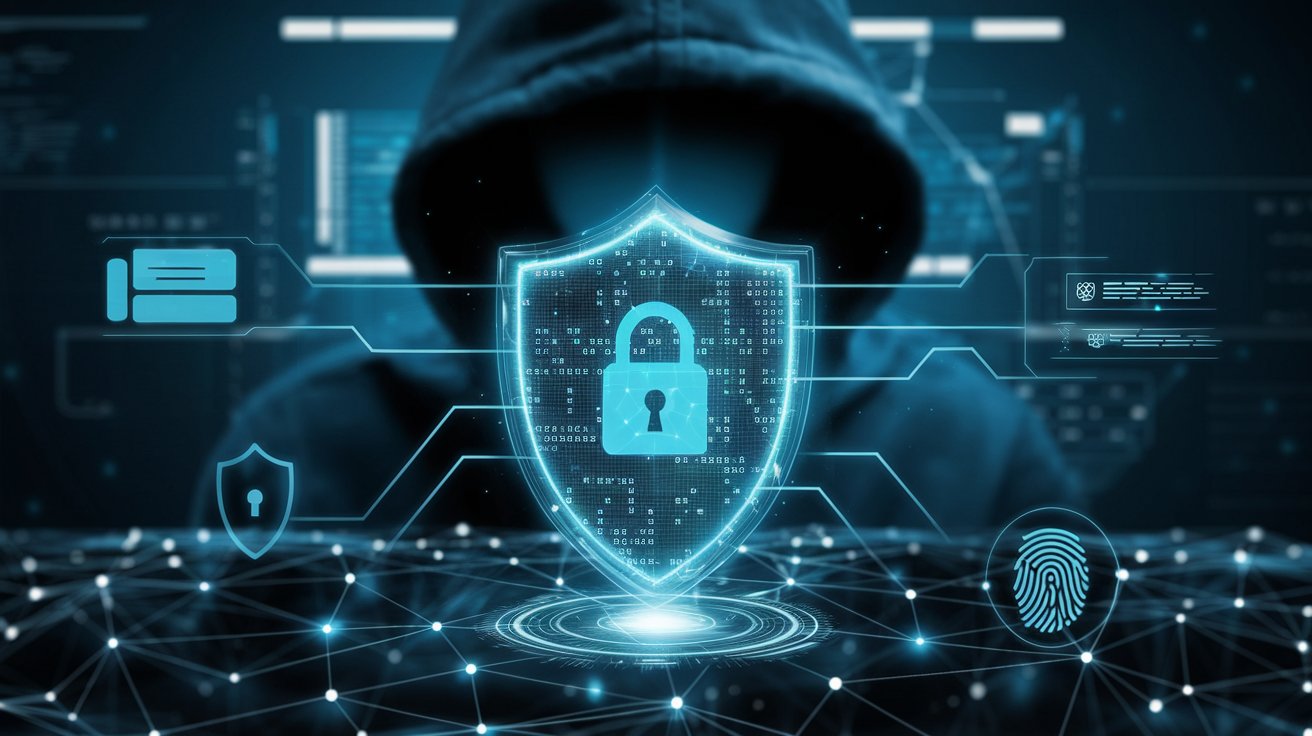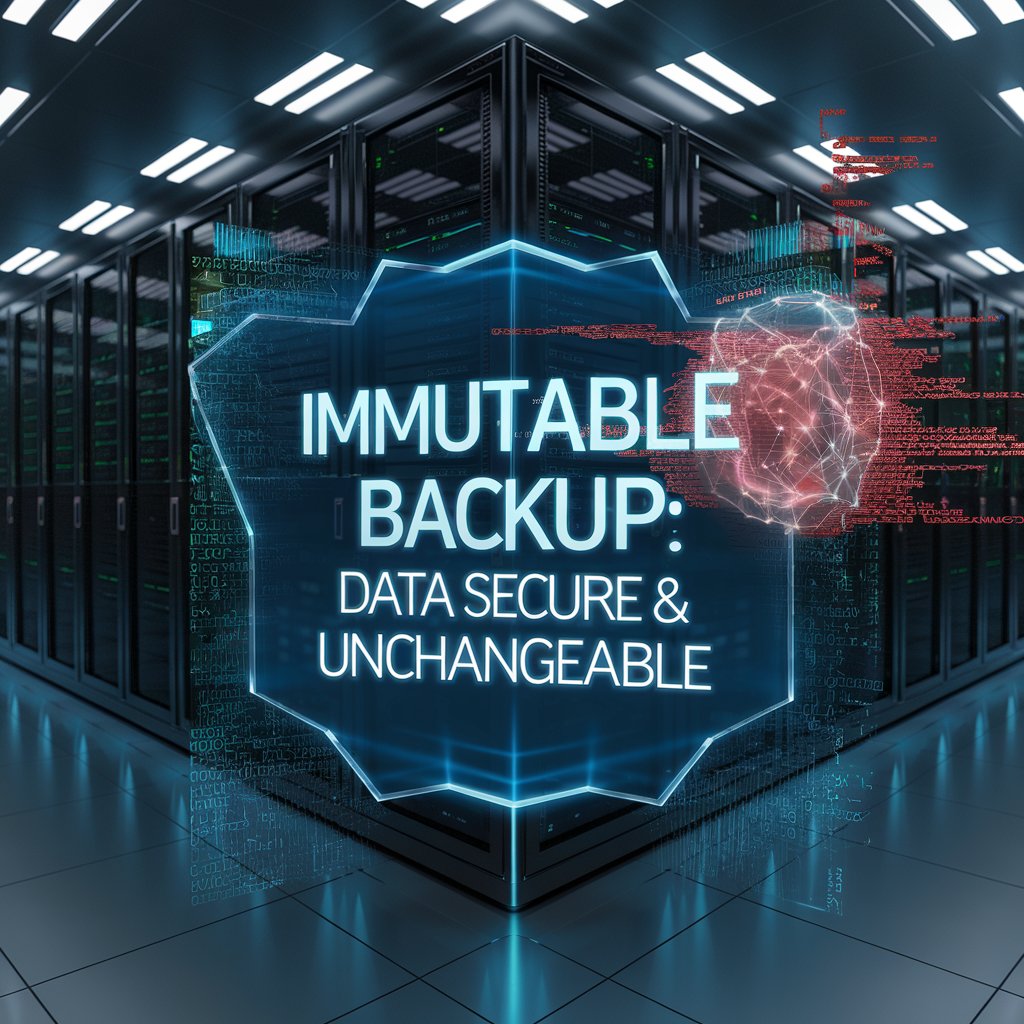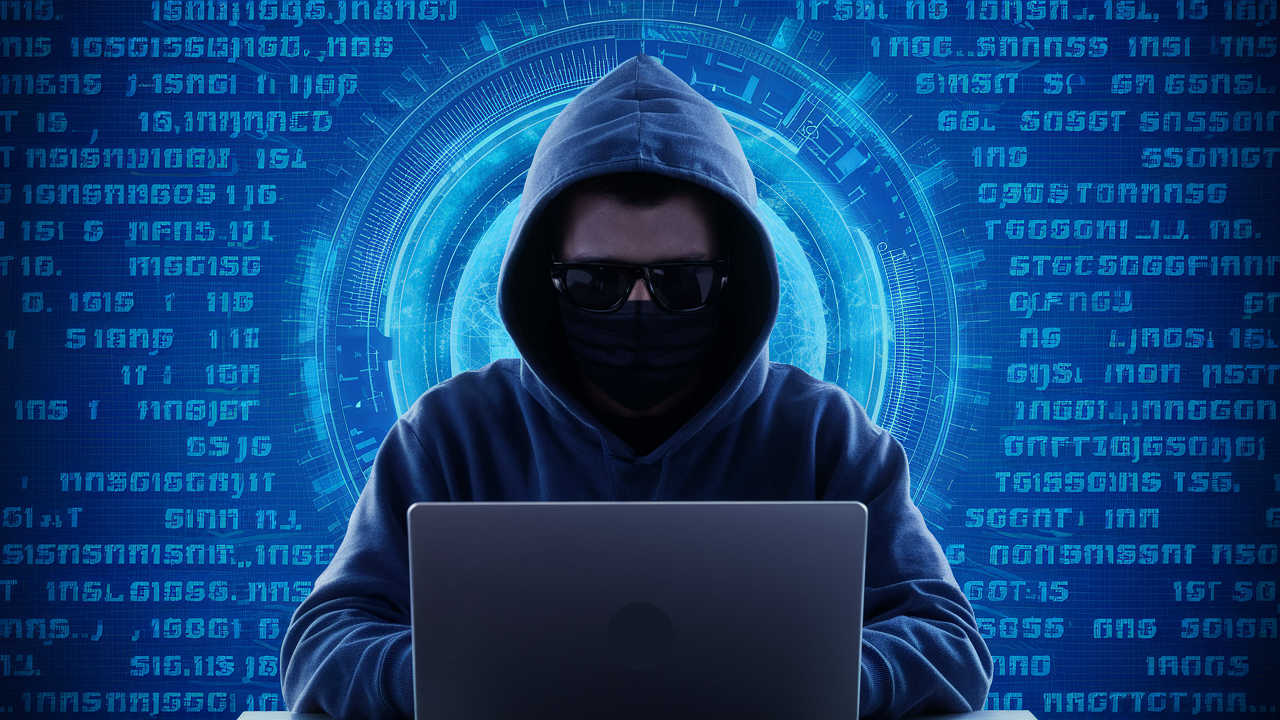
In today’s digital age, the threat of getting hacked is more prevalent than ever. With cybercriminals constantly devising new ways to breach personal and professional security, it’s crucial to take proactive steps to safeguard your online presence. Whether you’re a seasoned internet user or just getting started, implementing these essential cybersecurity practices can significantly reduce your risk of falling victim to hackers. Here are nine actionable tips to enhance your digital security and protect your personal information from cyber threats, helping you avoid getting hacked.
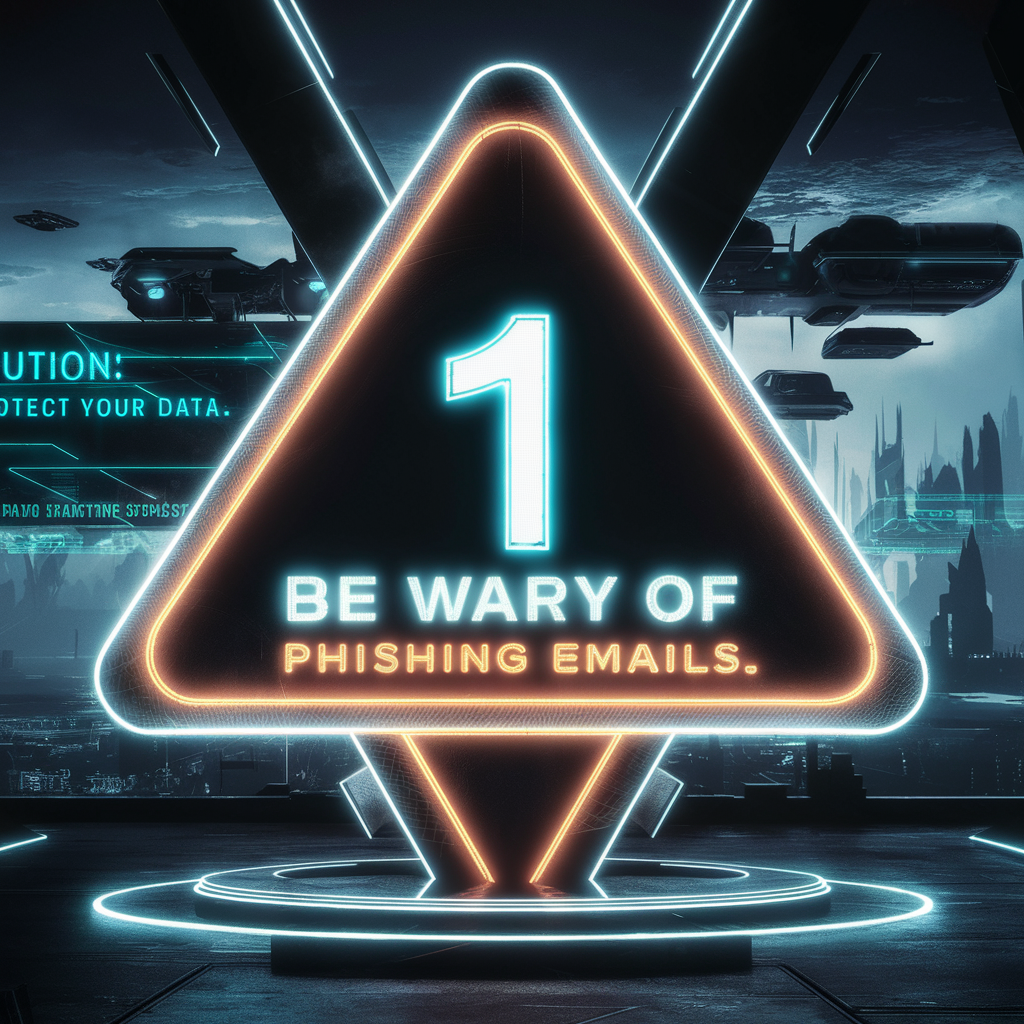
Be Wary of Phishing Emails
Understanding Cyber Threats: How to Avoid Getting Hacked
Did You Know? 9 out of 10 cybersecurity breaches are caused by simple mistakes such as clicking on fraudulent links that look real but are not.
What it is: Phishing emails are fraudulent messages that appear to come from trusted sources. They often contain links or attachments designed to steal your personal information.
Phishing emails often exhibit several common characteristics that can help you identify and avoid them:
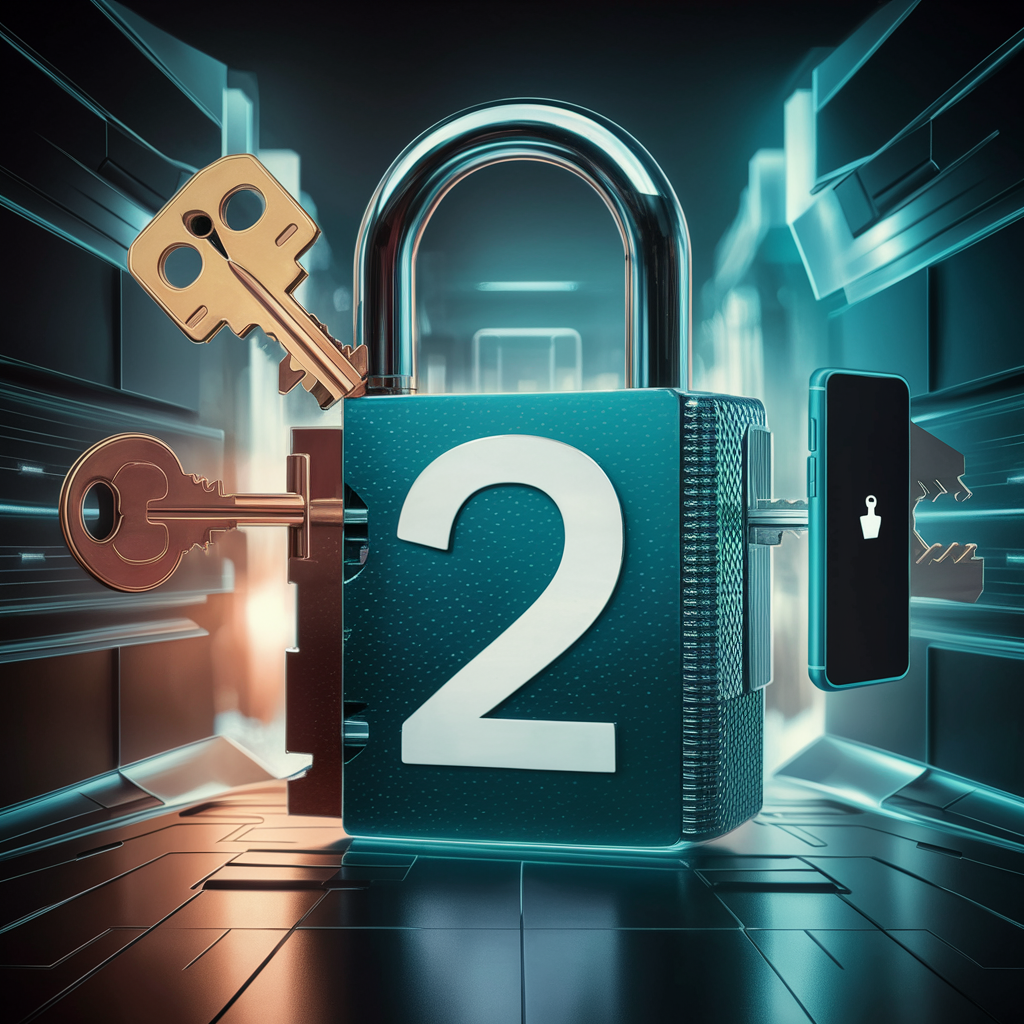
Enable Two-Factor Authentication (2FA)
Setting up Two-Factor Authentication (2FA) significantly reduces the likelihood of your accounts being hacked. 2FA adds an extra layer of security by requiring not just a password but also a second form of verification, such as a text message code or authentication app. This makes it much harder for hackers to gain access, even if they have your password. While no security measure is foolproof, enabling 2FA can decrease the risk of account compromise by over 99%, making it one of the most effective ways to protect your online accounts.
What to do Today: Turn on 2FA for all your accounts that support it. This makes it much harder for hackers to gain access, even if they have your password.
Two-factor authentication (2FA) is one of the most effective ways to protect your online accounts. Free versions of authenticator apps like Google Authenticator, Authy, and Microsoft Authenticator can be easily downloaded and provide strong security. While SMS or email codes are less secure, they are still better than relying solely on passwords. For the highest level of protection, consider using hardware tokens like YubiKey or Google Titan Security Key, or biometric authentication methods if available. By implementing 2FA, you can significantly reduce the risk of getting hacked and enhance your overall online security.

Use Unique Passwords for Every Website
Do you remember the show “Name That Tune”? If not, it was a game show where contestants tried to guess the name of a song with the fewest number of notes. Hackers, however, play the opposite game—let’s call it “Guess That Password.” Instead of using the fewest guesses, hackers use high-powered hardware to guess your password up to several million times per second. If you have a weak password, they’re going to get in.
Many individuals fall into the habit of using the same password for all their online accounts due to the convenience of only needing to remember one password. However, this practice significantly increases the risk of a security breach. If a hacker manages to compromise one account, they can easily access all other accounts that use the same password. This can lead to a cascade of issues, including unauthorized access to sensitive information, financial loss, and identity theft. It is crucial to use unique passwords for each account to minimize the impact of a potential breach and enhance overall security.
Did you know that the most common password is still “Password123”?
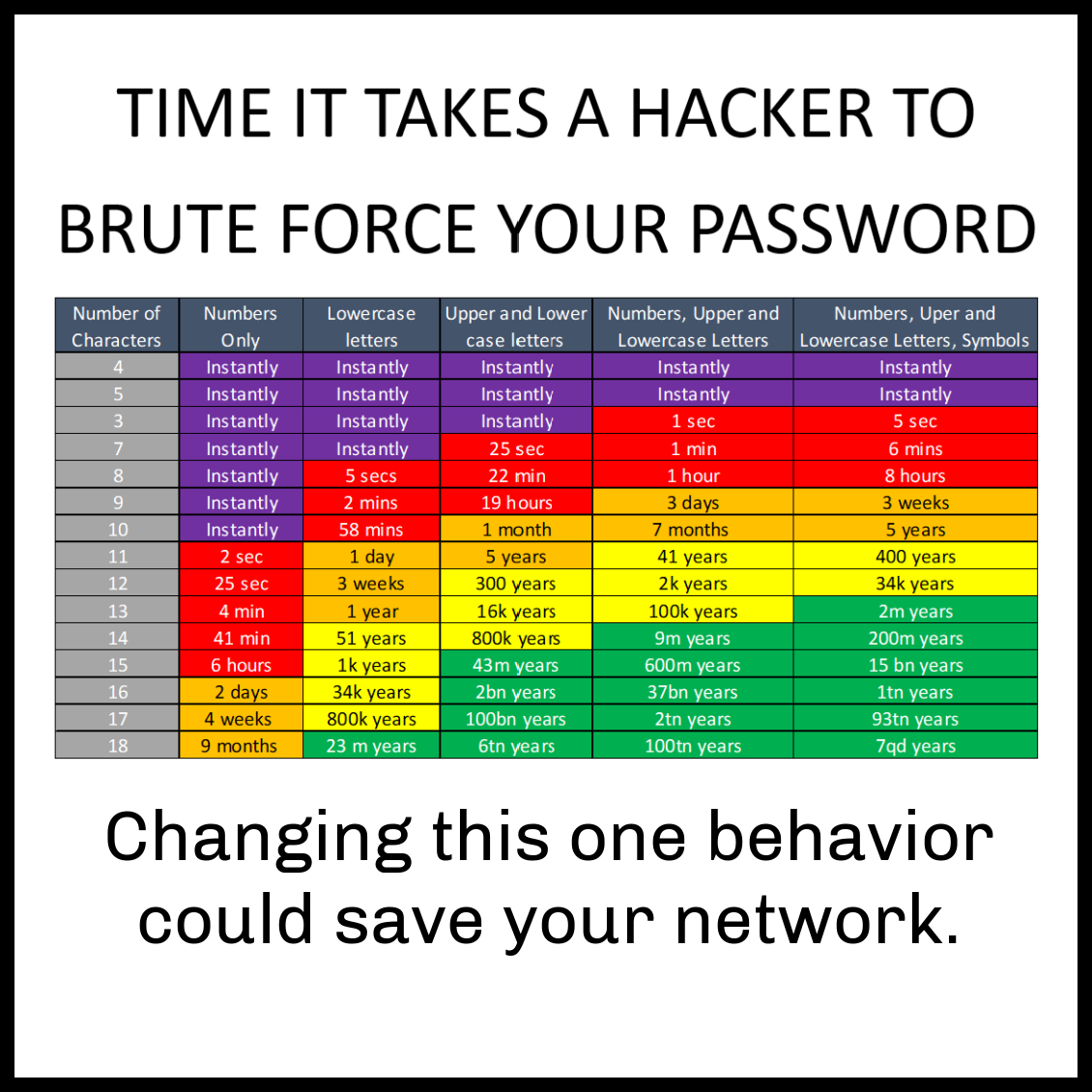
When setting up a new password, it’s essential to make it complex by including a mix of upper and lower case letters, numbers, and special characters, as this complexity makes it harder for hackers to crack. Additionally, aim for a password that is at least 12 characters long, as longer passwords are more difficult to guess or brute-force. Avoid using easily guessable information such as your name, birthdate, or common words and phrases, since hackers often use dictionaries of common passwords to breach accounts.
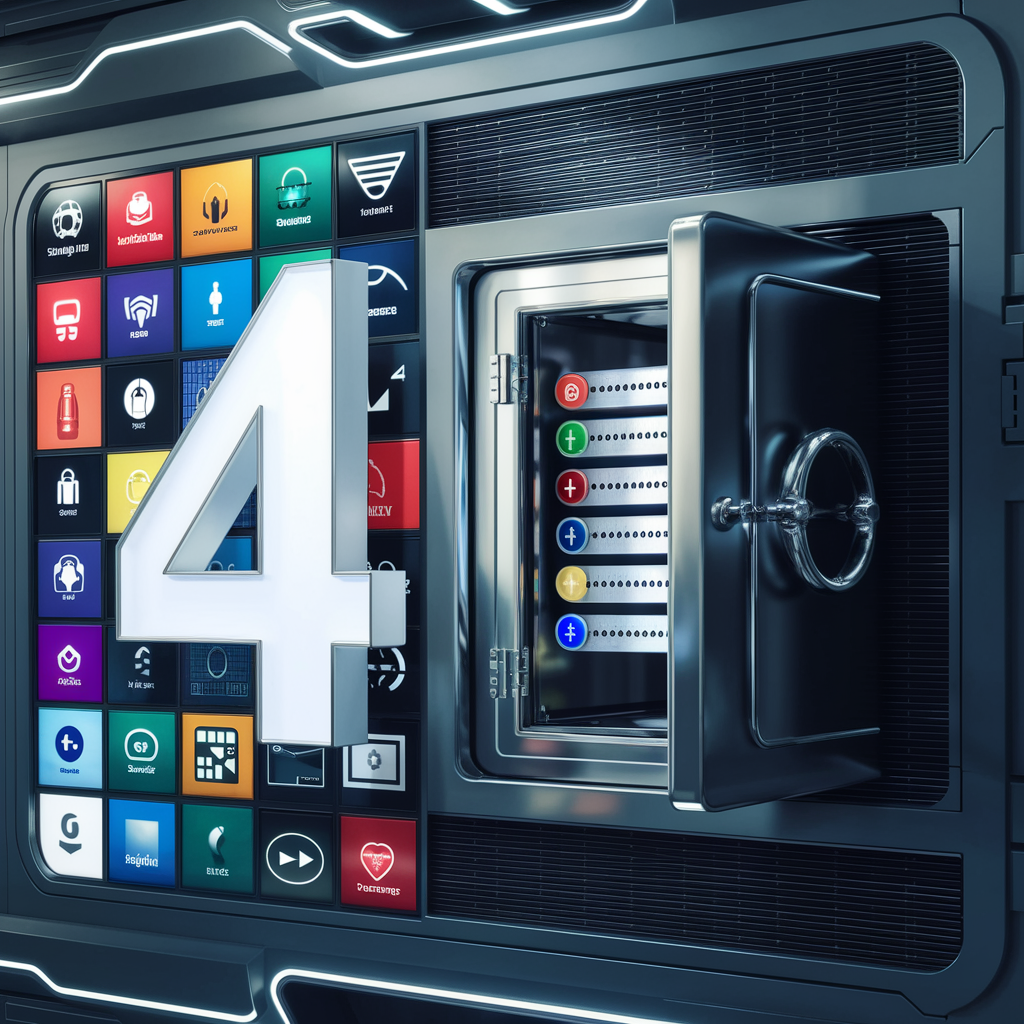
Utilize a Password Management System
Top Password Practices to Avoid Getting Hacked
I know what you’re thinking: “How am I going to remember all my passwords? What do I do if I get locked out? Isn’t it going to take a huge amount of time to get into my accounts?” Yes, it is an extra step to access your accounts, and remembering all your passwords would be incredibly difficult. That’s why you need to adopt the use of a password management system. These tools securely store and manage your passwords, making it easy to access your accounts while keeping them safe from hackers.
A password manager is a tool that securely stores and manages your passwords, so you don’t have to remember each one. What to do: Use a reputable password manager to generate and store strong, unique passwords for each of your accounts.
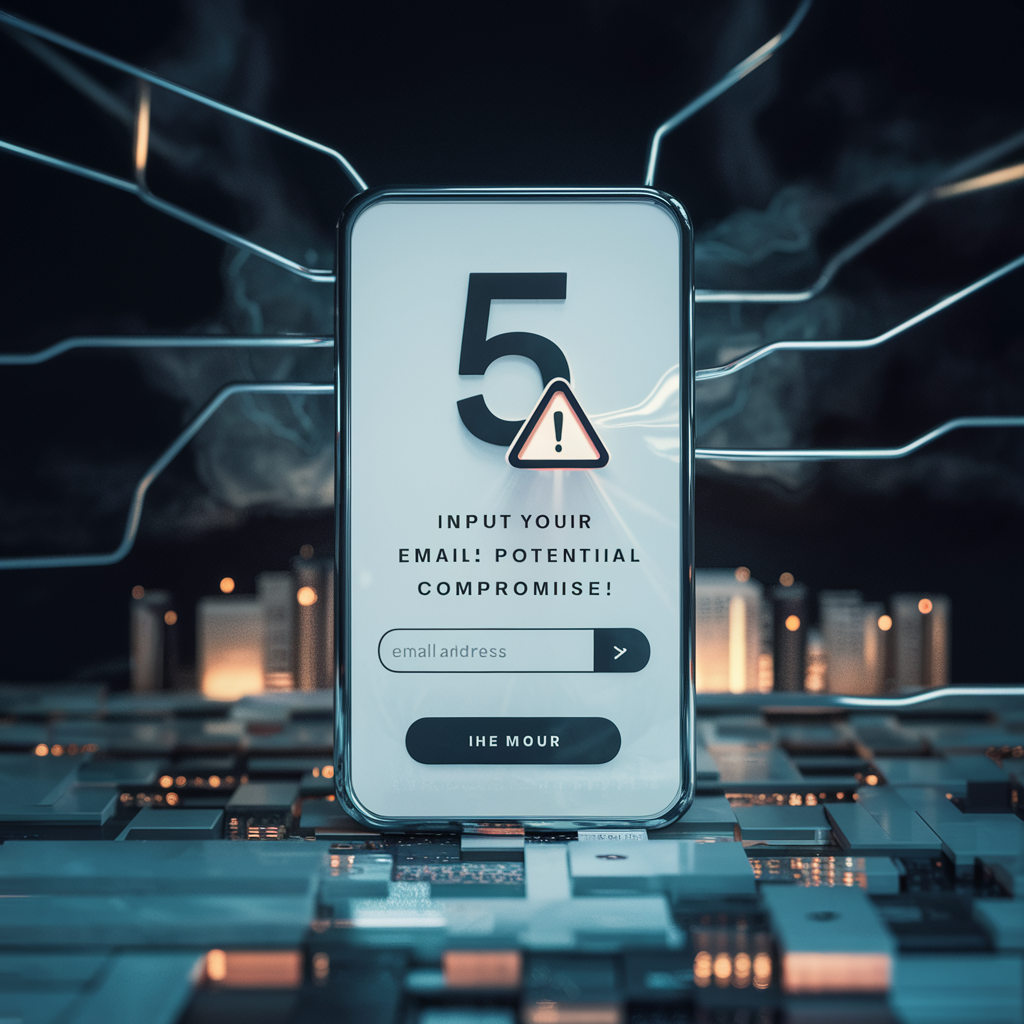
Check if Your Information Has Been Compromised
What if I told you that most hackers don’t even need to guess your password—they already know it. Scary, right? You’ve likely heard on the radio or seen in the news about major companies experiencing security breaches that compromise countless records.
1. Yahoo (2013-2014) Impact: 3 billion accounts
2. Marriott International (2014-2018) Impact: 500 million guests
3. Equifax (2017) Impact: 147 million people
4. Facebook (2019) Impact: 540 million records
5. Target (2013) Impact: 40 million credit and debit card accounts, 70 million additional records
If your email address was part of a data breach, hackers might have access to your personal information.
What to do: Use websites like Have I Been Pwned to check if your email has been involved in a data breach. Follow their guidance if your data has been compromised, such as changing passwords and enabling two-factor authentication on those accounts and using a different email.
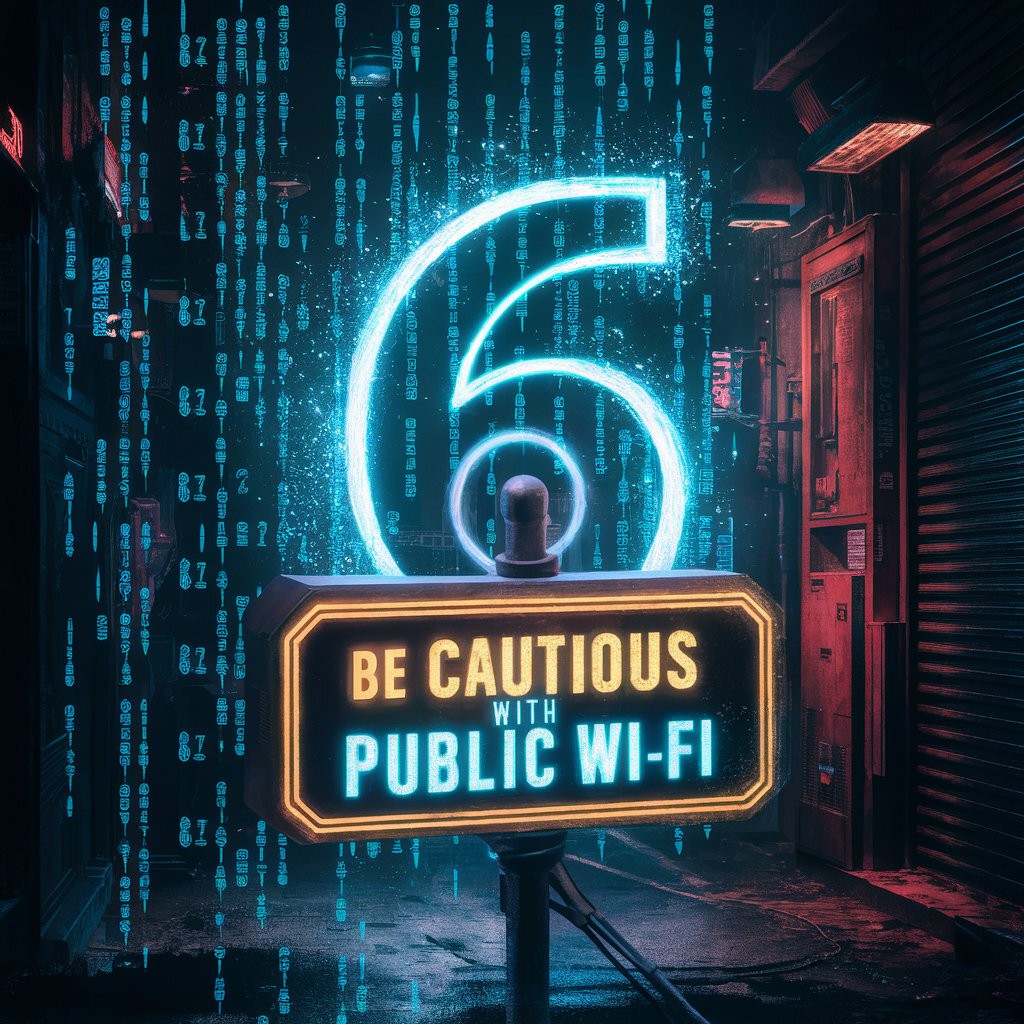
Be Cautious with
Public Wi-Fi
In today’s interconnected world, the convenience of public Wi-Fi networks comes with significant security risks. These networks are often unsecured, providing an easy gateway for hackers to intercept your data. To safeguard your personal information, it is crucial to avoid accessing sensitive accounts, such as banking or email, when connected to public Wi-Fi. When using these networks is unavoidable, employing a Virtual Private Network (VPN) can encrypt your connection and enhance your online security. Stay vigilant and protect your data by being cautious with public Wi-Fi usage.
What it is: Public Wi-Fi networks are often unsecured, making it easy for hackers to intercept your data.
What to do: Avoid accessing sensitive information, such as banking or email accounts, when using public Wi-Fi. If necessary, use a Virtual Private Network (VPN) to encrypt your connection.

Keep Your Software
Up to Date
Keeping your software up to date is a crucial step in protecting your digital security. Software updates often come with essential security patches that address vulnerabilities and protect against the latest threats. By regularly updating your operating system, browser, and other software, you ensure that your devices are equipped with the most recent security improvements, safeguarding your personal information and maintaining your digital safety.
What to do: Regularly update your operating system, browser, and other software to ensure you have the latest security improvements.

Use Anti-Virus Software, and Content Filters
How Regular Software Updates Help You Avoid Getting Hacked
Did you know that there are lists of known bad actors with identified IP addresses and countries of origin? Recognizing these threats is the first step in protecting your digital environment. Building an inner circle of trusted contacts and creating a safelist of email contacts is essential for maintaining security. Simple antivirus software can identify and block malicious behavior from these bad actors, preventing your system from being compromised. Taking these proactive measures helps ensure your digital interactions remain safe and secure.
Content filters help to block malicious emails and messages, reducing the risk of falling for phishing or other scams.
What to do: Enable content filters on your email and phone to automatically filter out suspicious messages. Many email providers and mobile devices have built-in filtering options. Set up antivirus software.
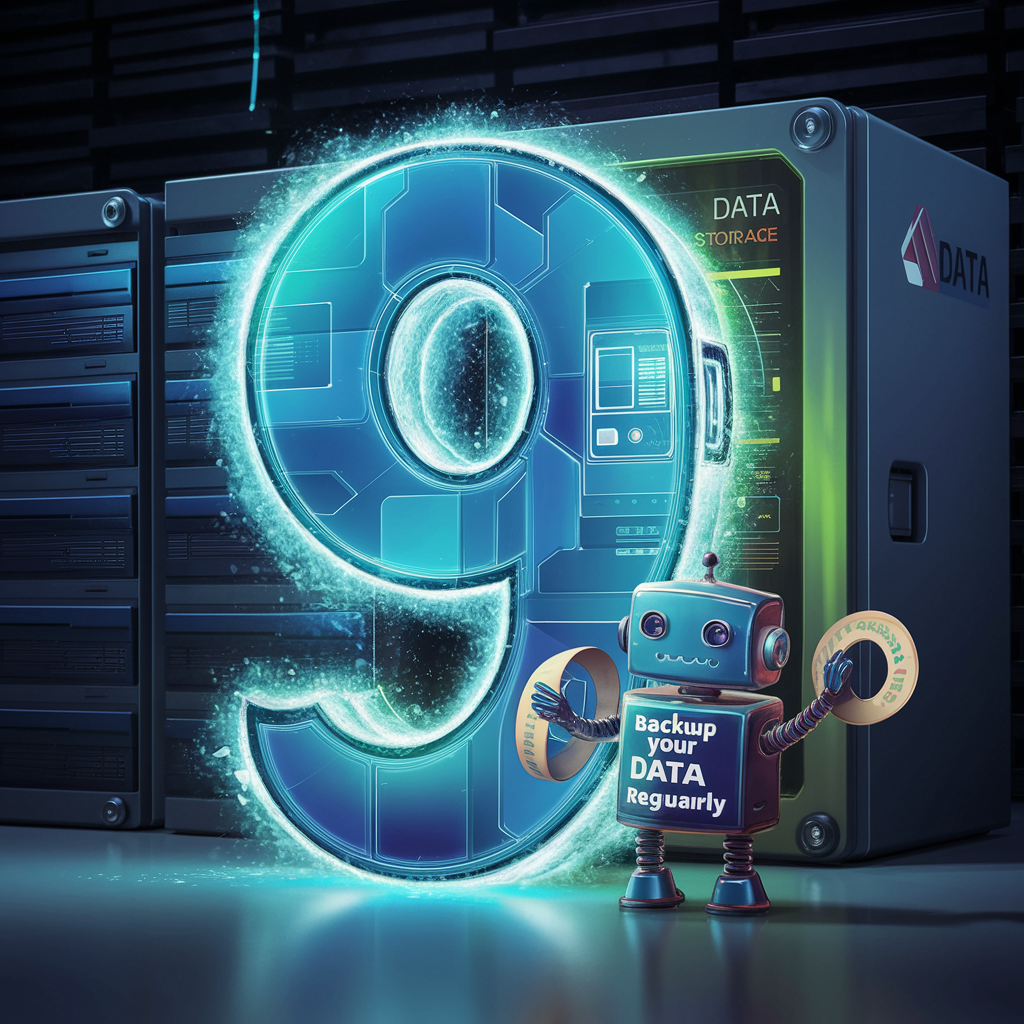
Back Up Your Data Regularly
Here’s the honest truth that nobody wants to hear: you can follow all the best cybersecurity practices, and hackers can still find a way in. Modern-day hackers are extremely cunning, and no single behavior will fully protect you 100%. You need to assume that they might guess your password, bypass two-factor authentication, infiltrate your system despite updated software, and evade antivirus protection. When they do get in, their number one attack method is ransomware, where they lock up your computer and encrypt your files, holding the key to unlock them. The only effective countermeasure at this point is having a backup of your files and performing a restore.
Regular backups ensure that you can recover your data in case of a cyberattack or hardware failure.
What to do: Use an external hard drive or a cloud service to back up important files regularly. This way, if your data is ever lost or encrypted by ransomware, you can restore it from your backup.
Don’t wait until it’s too late to protect your personal and professional information. Take the first step towards securing your digital life by setting up a free cybersecurity training session with our experts. Reach out to us today to schedule a time that works for you, and let us help you build a safer online presence. Contact us now to get started!

